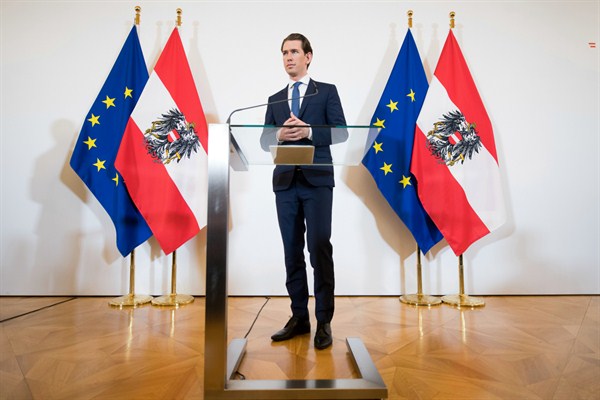VIENNA—In a bizarre showing of defiant support late last month, about 200 people cheered on the man who’d just become the briefest chancellor in Austria since 1945. “Stand up for Sebastian,” the crowd chanted, their words subdued by loud music, the rain, and the uncertainty of the political future.
Austria’s Parliament had voted that Chancellor Sebastian Kurz and his entire Cabinet be dismissed and replaced with a caretaker government until fresh elections in September. Despite his high approval ratings, Kurz became the first chancellor to be disposed of by Parliament in more than seven decades.
At age 31, Kurz had become the world’s youngest democratic leader in 2017 when he won Austria’s elections by promising to take a hard stance on migration. He was adored by his supporters as the savior of the conservative Austrian People’s Party, or OVP, a fresh face leading it back to its old glory. Abroad, political elites watched him more warily, since he was the first European head of state to invite a far-right party into government as a junior coalition partner since the 2015 migrant and refugee crisis.

